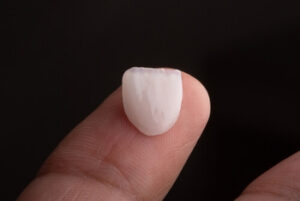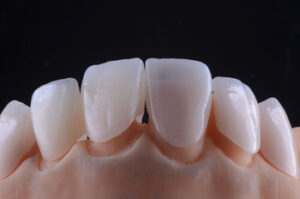Veneers are a widely popular cosmetic dentistry solution, offering a stunning transformation for people with stained teeth, uneven teeth, or damage to their natural teeth. But despite their reputation for durability, there’s always that pressing question: Can veneers fall off? Let’s dive into the nitty-gritty details to understand how veneers work, what might cause them to come loose, and what you can do to ensure your appealing smile stays intact.
What Are Dental Veneers and How Do They Work?
Before we explore the reasons veneers may fall, it’s important to know what they are. Dental veneers are thin shells, often fabricated of porcelain or composite resin, that are attached to the outer surface of your natural teeth. They’re designed to cover imperfections, giving you an appealing smile and an even, polished appearance.
In most cases, veneers are incredibly sturdy and can last for many years with proper care. However, like anything, they aren’t entirely indestructible. So, what are some common reasons veneers fall off?
Types of Veneers and Their Durability: What You Need to Know
There are two main types of veneers: porcelain veneers and composite resin veneers. Each offers distinct advantages and potential downsides in terms of durability and strength. Knowing these differences can guide you in selecting the right option and understanding the care they require.
Porcelain Veneers

Composite Resin Veneers
Composite resin veneers are more affordable and are sometimes applied in a single visit. They can be shaped and coloured to fit your teeth precisely, but they are not as resistant to stains and may need to be replaced more frequently—typically every 5–7 years. While composite veneers can be more easily repaired, they may be more prone to chipping if exposed to pressure from grinding or biting hard foods.
Common Reasons Veneers May Fall Off
- Tooth Decay and Gum Disease: Veneers attach to your natural teeth, which means that the health of your teeth plays a critical role in how well they stay bonded. In case of tooth decay or gum disease, the underlying structure may weaken, causing the veneers to come loose. Gum disease can lead to receding gums, exposing more of the tooth and reducing the stability of your dental veneer.
- Poor Bonding Agent Application: The glue or bonding agent used to affix dental veneers to your teeth is crucial. If it isn’t applied properly, or if the bonding process is compromised, your veneers could become loose over time. High-quality bonding is essential for a secure attachment that can endure the forces of biting and chewing.
- Constant Pressure from Grinding Teeth: People who suffer from bruxism (or teeth grinding) place excessive pressure on their teeth, which can weaken or even break the bond between veneers and teeth. If you grind your teeth at night, using a night guard can shield your veneers from damage caused by constant pressure.
- Biting on Hard Foods and Sticky Foods: Biting into the hardest foods, such as ice or hard candies, or consuming sticky foods like toffee, can increase the risk of damaged veneers. Even foods like chewy steak or crunchy chips can stress the bond and lead to loose veneers. Practising caution and taking care when eating can prolong the life of your dental veneers.
- Accidents or Trauma: A hit to the face from a contact sport or any dental injury could dislodge your veneers. It’s always wise to use a mouthguard during sports to protect not only your veneers but also your overall oral health. Accidents can sometimes cause immediate or gradual veneer loosening.
Signs Your Veneers May Be at Risk
Wondering if your veneers are at risk of falling off? Here are some signs to watch out for:
- Feeling Loose or Shifting: If you feel like your veneer is wiggling, it’s time for a dental appointment. In some cases, veneers fell without warning, but a loose veneer can be an early indicator.
- Increased Tooth Sensitivity: Experiencing sensitivity, especially when consuming cold foods or hot beverages, may signal that the veneer’s bond is weakening.
- Changes in Fit: If your veneers no longer fit properly, it may be due to changes in your mouth, like receding gums or shifting teeth.
Don’t ignore these warning signs! Seeing a dentist promptly can save you from more extensive damage.
What to Do If Your Veneers Fall Off

- Find the Veneer: If possible, try to locate your veneer and store it in a clean container. Bringing the fallen veneer to your dental appointment can help your dentist assess whether it can be reattached.
- Avoid Eating on That Side: Minimise stress on the exposed tooth by sticking to soft foods and avoiding anything chewy or crunchy.
- Use Dental Wax for Protection: If your tooth feels sharp or sensitive, applying dental wax can temporarily protect it until your appointment.
Can You Repair or Replace a Veneer at Home?
While it may be tempting to try a quick fix, it’s crucial to avoid using any adhesives or DIY solutions on your veneers. Using an improper type of glue could damage your tooth or make it impossible for your dentist to reattach the veneer. Always consult with a professional for the best outcome.
How Dentists Fix a Fallen Veneer
Your dentist will inspect the veneer and the tooth it was attached to. If both are in good shape, reattaching the veneer might be possible. However, if the veneer is damaged or the tooth has decay, your dentist may recommend a new veneer or even a different dental treatment.
Sometimes, veneers that have fallen off repeatedly may signal the need for a more permanent solution, like crowns or implants. In these cases, seeking a second opinion can be valuable.
Preventing Veneers from Falling Off: Tips for Long-Term Care
Want to keep your veneers firmly in place for a lifetime? Here’s how:
- Maintain Good Oral Health: Brush and floss regularly to avoid tooth decay and gum disease. Healthy teeth and gums mean a stronger foundation for your veneers.
- Use a Night Guard If You Grind: Protect your investment by wearing a night guard if you grind your teeth. This device can shield your veneers from the wear and tear of constant pressure.
- Avoid Hard and Sticky Foods: It may be tempting to chew on ice or enjoy sticky sweets, but these habits can loosen your veneers. Prioritise foods that are easier on your teeth.
- Schedule Regular Dental Check-Ups: Visiting your dental clinic regularly ensures your veneers are inspected, and any minor issues are addressed before they worsen.
- Be Cautious with Contact Sports: Use a mouthguard to protect your teeth and veneers from trauma. Even a small bump can cause noticeable damage.
When to Get a New Veneer
In some cases, a veneer that’s fallen off may be a sign that it’s time for a replacement. Porcelain veneers generally have a longer lifespan compared to composite ones, but both types can become worn or chipped over time. If your veneer falls and your dentist suggests a new one, don’t be alarmed—this can be an opportunity to improve the aesthetics or fit of your smile.
The Role of Cosmetic Dentistry in Veneer Care

Remember, even the most expertly placed veneers can fall off under the wrong conditions. Regular dental visits, a commitment to oral hygiene, and utmost care for what you eat can all make a difference.
Conclusion: Keep Your Smile Bright and Secure
Veneers are a fantastic way to achieve a flawless smile, but they do require some maintenance. By understanding the factors that can cause veneers to fall and taking preventative measures, you can enjoy your dazzling, healthy smile for years to come.
Have concerns about your veneers or need guidance on maintaining your veneers, contact Dental 266 at 02 9051 0600 to discuss what’s best for your specific needs.
References:
WebMD. (n.d.). Veneers. Retrieved from https://www.webmd.com/oral-health/veneers
Zhermack Magazine. (n.d.). Dental veneer cementing: Step-by-step. Retrieved from https://magazine.zhermack.com/en/studio-en/dental-veneer-cementing/
Colgate. (n.d.). Do I need a night guard? Retrieved from https://www.colgate.com/en-us/oral-health/bruxism/do-i-need-a-night-guard
Cleveland Clinic. (n.d.). Teeth sensitivity. Retrieved from https://my.clevelandclinic.org/health/symptoms/10954-teeth-sensitivity






